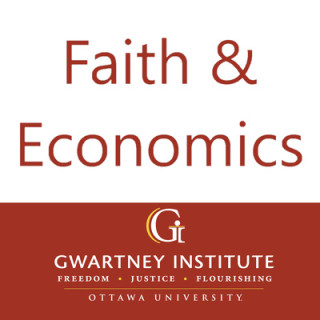
S01:E152

In this episode, the Gwartney team takes a look at some Classical Liberal priors. This article by Donald J. Boudreaux discusses his personal 20 priors that play a significant role in discussions of society and economics. The team goes through the second 10 in this episode discussing how we feel about each one. If you would like to read each prior as we go along with them the link is below:
https://www.aier.org/article/some-classical-liberal-priors/
Timeline:
FDR is a predator?- 2:30
Adam Smith's Invisible Hand- 14:05
Solve a Complex Problem w/ simple solution- 20:03
Philosophers in charge- 27:00
No Free Lunches- 29:00
Quote of the Cast:
No Free lunches unless there is a Pareto improvement- Peter